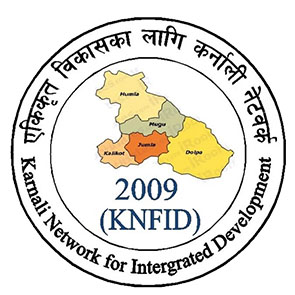Karnali Network for Integrated Development (KNFID) Nepal Established in 2067 BS in Kalikot district, Karnali Network for Integrated Development (KNFID) Nepal is a non-profit, non-governmental organization dedicated to combating injustice and inequality in Nepal. Originally focusing on development training and networking, KNFID expanded its efforts to include effective development models.
Vision
KNFID Nepal envisions creating a prosperous and equitable society in Nepal where all individuals have access to opportunities and resources for personal and collective development.
Mission
KNFID Nepal’s mission is to empower the people of Nepal by implementing sustainable development projects, fostering education and skill-building initiatives, and promoting social and economic inclusivity. This includes advocating for policy changes and empowering communities to create positive and lasting change.
Goals
The overarching goal of KNFID Nepal is to create a prosperous and equitable society in Nepal by empowering its people through various sustainable development projects and initiatives.
Objectives
KNFID Nepal’s objectives are aimed at addressing various aspects of societal development and empowerment. These objectives include:
- Improving access to quality education, particularly in rural and marginalized communities, with a focus on girls’ education.
- Enhancing healthcare services and promoting awareness about health and hygiene practices, especially in underserved areas.
- Empowering women and girls through skill development, vocational training, and advocacy for gender equality.
- Ensuring the protection and welfare of children, addressing issues such as child labor, trafficking, and child marriage.
- Supporting marginalized communities in developing sustainable livelihoods through initiatives such as agricultural training and microfinance programs.
- Addressing environmental challenges through sustainable practices, reforestation, climate change adaptation and raising awareness about conservation.
- Enhancing community resilience through disaster preparedness training and rapid response in natural disaster situations.
- Advocating for human rights, social justice, and legal reforms, particularly focusing on issues like caste discrimination and land rights.
- Improving rural infrastructure, water supply, sanitation, and overall living conditions to bridge the urban-rural development gap.
- Preserving and promoting Nepal’s diverse cultural heritage and traditions through various initiatives.
- Engaging in policy advocacy and collaborating with government bodies to address systemic issues and ensure effective policy implementation.
- Strengthening local community organizations and building their capacity to address their own development needs.

